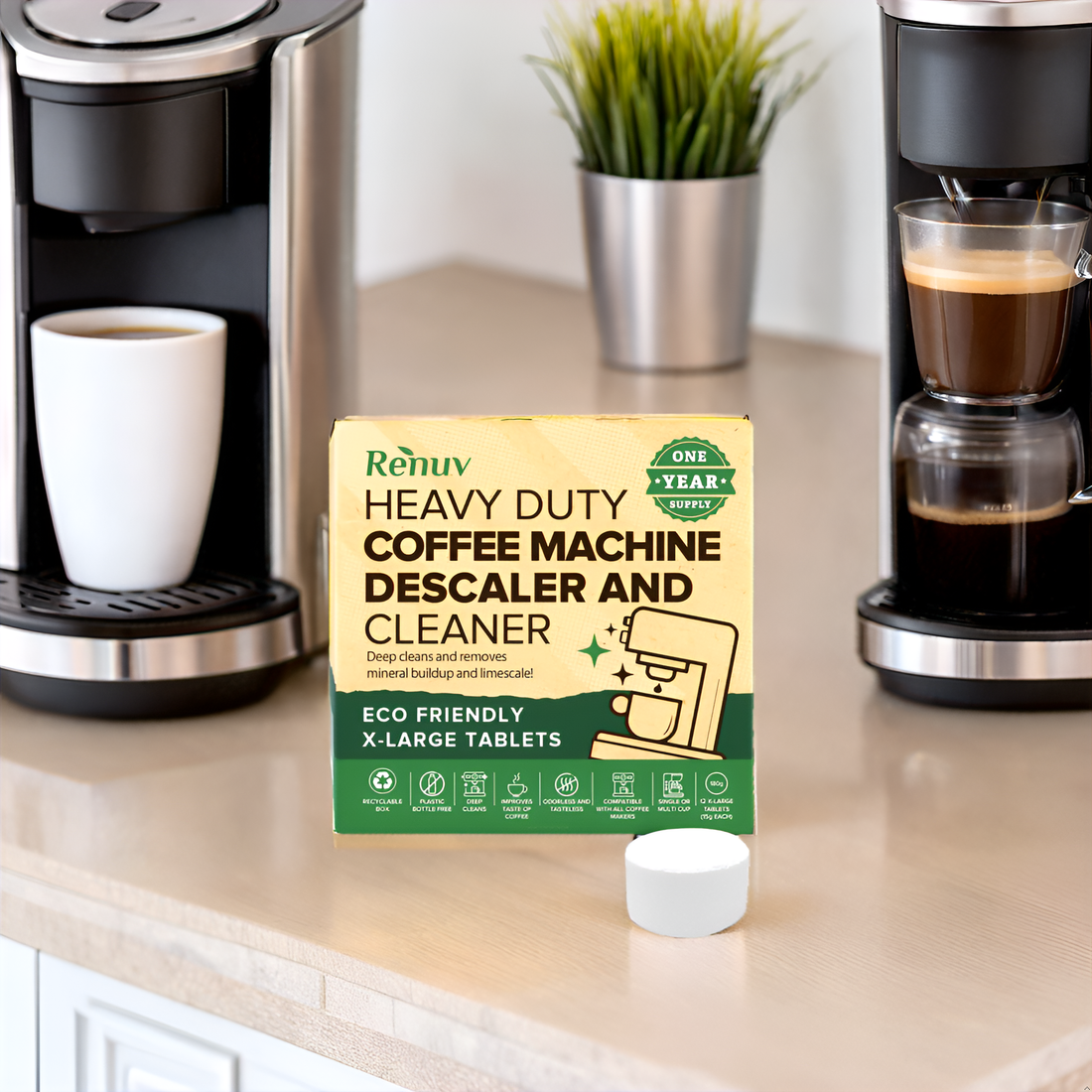
Cleaning Your Coffee Maker with Vinegar Is a Bad Idea
Share
Cleaning your coffee maker is crucial to ensuring that your morning cup of joe is fresh, flavorful, and free from bacteria. Many people turn to vinegar as a natural, affordable, and effective cleaning solution. However, while vinegar is a popular choice, it may not be the best option for cleaning your coffee maker. Here's why:
1. Vinegar's Odor Can Linger
Vinegar has a strong, pungent smell that can be difficult to fully rinse out of your coffee maker. Even after multiple rinses, the acidic smell can cling to the internal components, especially in plastic parts, and may seep into your next brew. This can lead to a sour, off-putting taste in your coffee, which can ruin the experience for even the most dedicated coffee lovers.
2. Corrosion of Rubber Seals and Metal Components
Vinegar is acidic, and while this acidity helps to break down mineral deposits like limescale, it can also be corrosive over time. Repeated use of vinegar for cleaning will potentially damage the rubber seals and metal components of your coffee maker, such as the heating element or the internal tubing. This corrosion can and will shorten the lifespan of your machine and lead to costly repairs or replacements.
3. Ineffectiveness Against Mold and Bacteria
Vinegar is often touted as a natural disinfectant, but it’s not a strong enough antimicrobial agent to kill all types of mold, bacteria, and yeast that can thrive in a coffee maker's warm, moist environment. Certain strains of bacteria and mold are resistant to vinegar, meaning they can survive a vinegar cleaning and continue to grow. This can be particularly concerning as these contaminants can negatively affect your health.
4. Possible Impact on Warranty
Many coffee maker manufacturers provide specific instructions on how to clean their machines and often advise against using vinegar. If you use vinegar to clean your coffee maker and it results in damage, you might void the warranty. This could leave you with a broken machine and no support from the manufacturer.
5. Residue Build-Up
Vinegar can sometimes leave behind a residue, especially if not thoroughly rinsed out. This residue can accumulate over time, affecting the flavor of your coffee and the performance of the machine. Additionally, if the vinegar is not completely rinsed out, it can combine with coffee oils and minerals, leading to clogs and reduced efficiency in your coffee maker.
Alternatives to Vinegar
If vinegar isn't the best choice for cleaning your coffee maker, what should you use? Here is the alternative:
Commercial Coffee Maker Cleaners:
These products are specifically designed to clean coffee makers safely and effectively. They remove limescale, coffee oils, and other residues without leaving a lingering odor. Renuv's coffee maker cleaner tablets will actually enhance the performance of your coffee maker, making for a better cup of coffee.
Conclusion
While vinegar is a common and convenient cleaning solution, it may not be the best choice for maintaining your coffee maker. Its potential to leave behind odors, cause corrosion, and be ineffective against certain microbes makes it a less-than-ideal option. Instead, consider using Renuv's coffee maker cleaner tablets that are safer for your machine and better for your coffee's taste and your health.
BUY IT HERE:

